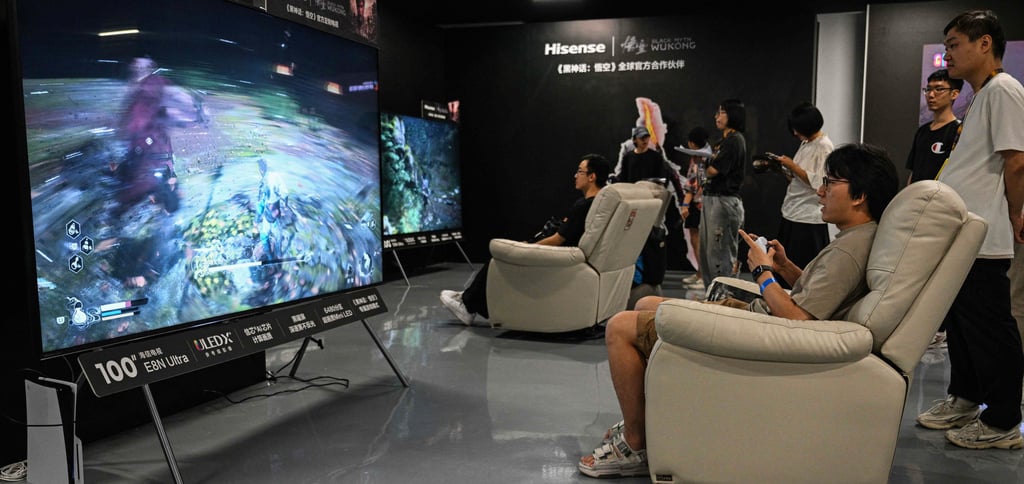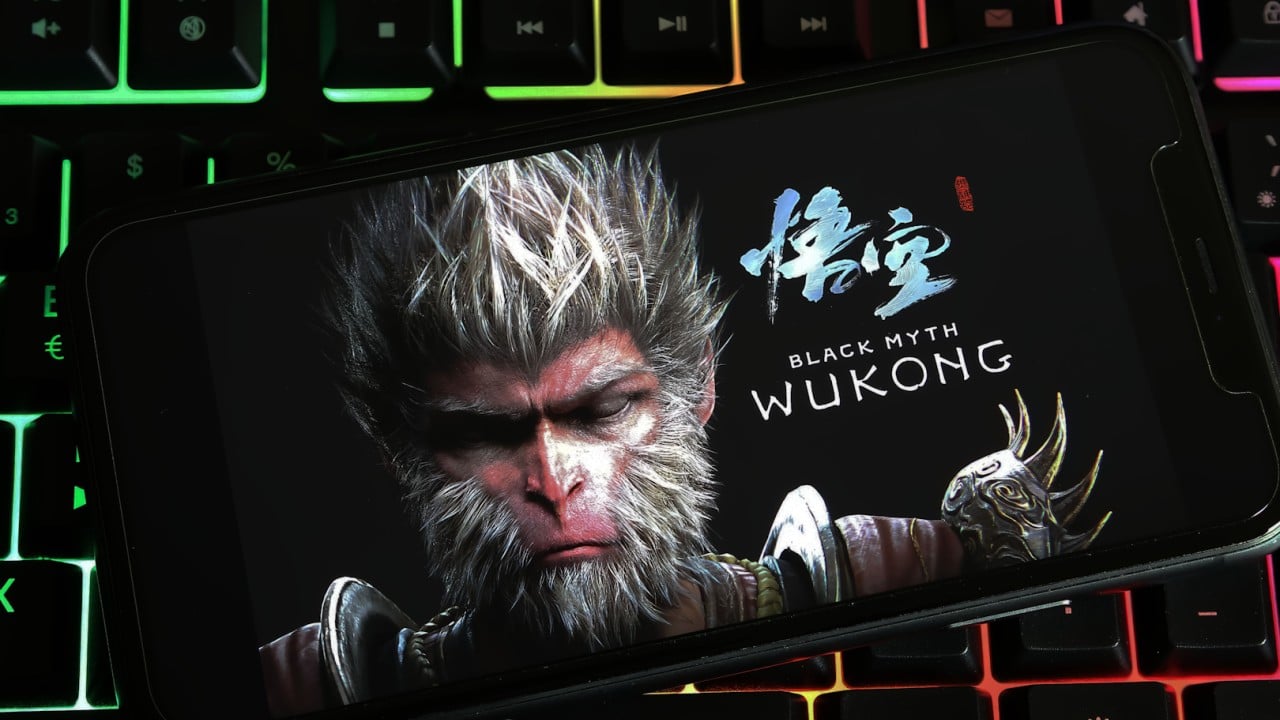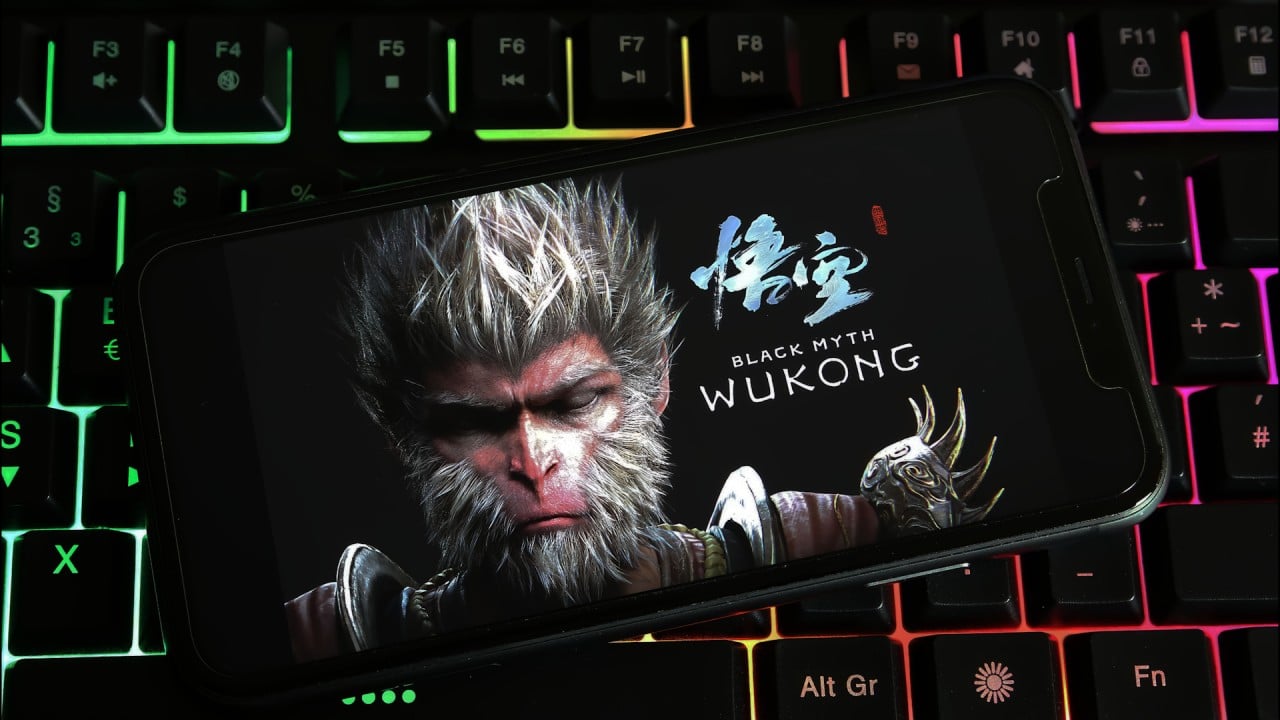As Black Myth: Wukong took the global gaming community by storm, the low-profile studio behind China’s first AAA video game has quickly become the centre of attention, fanning heated discussions in China’s gaming industry over the secret to its success.
Set up in 2014 in China’s southern tech hub of Shenzhen by Feng Ji, a former game designer at Tencent Holdings, Game Science this week realised the founder’s dream of making a home-grown blockbuster title.
After six years of development, the sprawling 3D action game has become the hottest single-player title on the PC game store Steam, putting it in the same league as some of the biggest games ever.
Feng’s obsession with Wukong, the Monkey King character from the 16th-century Chinese novel Journey to the West, started as early as his stint at Tencent, the world’s largest video gaming company by revenue.
There he was a core member of the development team on a project called Asura, a massively multiplayer online role-playing game based on The Legend of Wukong, an online novel adapted from the original.
That game made a bit of a splash in China upon its release in 2014, setting Feng and Yang Qi, the primary artist for Asura, on their own journey when they left Tencent to start their own studio.
In 2018, the company kicked off development of Black Myth: Wukong. With a staff of just 13 people at the time, it was an ambitious project. The development team relocated from Shenzhen to Hangzhou for the city’s “slower pace and lower living costs”, according to Chinese media Jiemian.
As development progressed, Game Science became desperate to woo talent. It released its first promotional video in 2020, eventually expanding the team to 140 people, according to the tally in the credit list for Wukong.
In a country known for churning out online games that derive most revenue from the sale of in-game items, pouring years into making a single-player title that would ultimately sell for 268 yuan (US$37) in China and US$60 in the US was a big bet. But it paid off on Tuesday, when in less than 24 hours, Wukong recorded 2.22 million concurrent players – the second-most ever on the Steam chart.
Previous Chinese games to gain a global following such as miHoYo’s Genshin Impact and NetEase’s Naraka: Bladepoint are “service-oriented or mobile games” that require much less development time.
Black Myth: Wukong requires “higher content standards and carries a greater risk of failure”, analysts from the research institute Third Bridge said in a recent commentary.
“It’s a bit like the Chinese football team entering the World Cup and getting a good ranking,” Zhou Hongyi, founder and chairman of Chinese cybersecurity firm 360 Security Technology, said of the game’s success in a Weibo post on Wednesday.
Adding to the complexity of creating the game, Wukong was produced under China’s stringent video gaming regulations, which require all titles to be licensed for commercial release and limits minors to playing games for just three hours per week. Based on comments online, Wukong can take more than 30 hours of gameplay to complete.
Censorship also intensified after the authority in charge of video game content was moved from being under the culture ministry to the propaganda department.

The overall budget of the game remains unknown, although it is estimated to be more than US$40 million, a small budget for a AAA game. By comparison, the 2020 game Cyberpunk 2077 reportedly cost more than US$400 million to make.
Tencent invested in Game Science in 2021 through a subsidiary, and currently owns 5 per cent of the studio, according to Tianyancha.
Beijing-based Hero Games invested 60 million yuan in Game Science in 2017 through its wholly-owned subsidiary Tianjin Hero Financial Holding Technology, giving it a 19 per cent stake, according to Tianyancha and the company’s annual report.
The company reported that it sold the stake for 480 million yuan in 2022, but 200 million yuan is still outstanding.
A number of executives at China’s major video gaming companies appear in the “special thanks” list in the Black Myth: Wukong credits. They include miHoYo co-founder and CEO Liu Wei, Tencent chief operating officer Ren Yuxin, and Hero Games founders Wu Dan and Ying Shuling.



